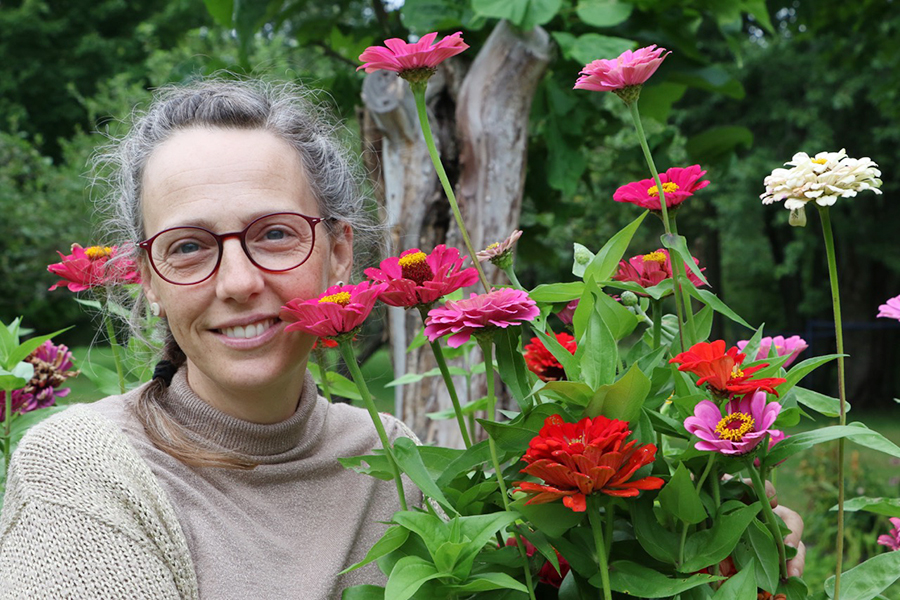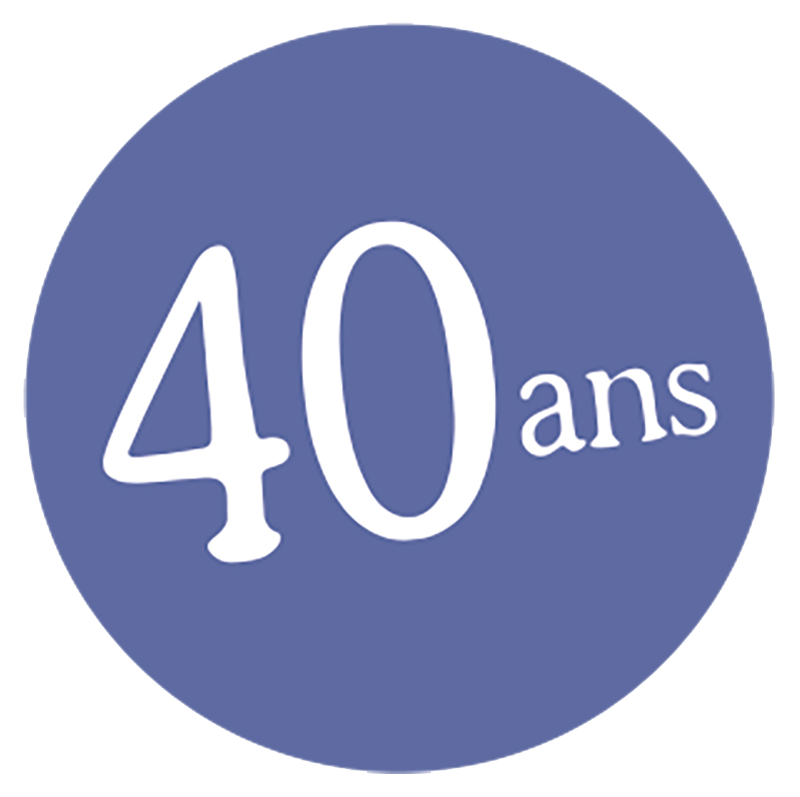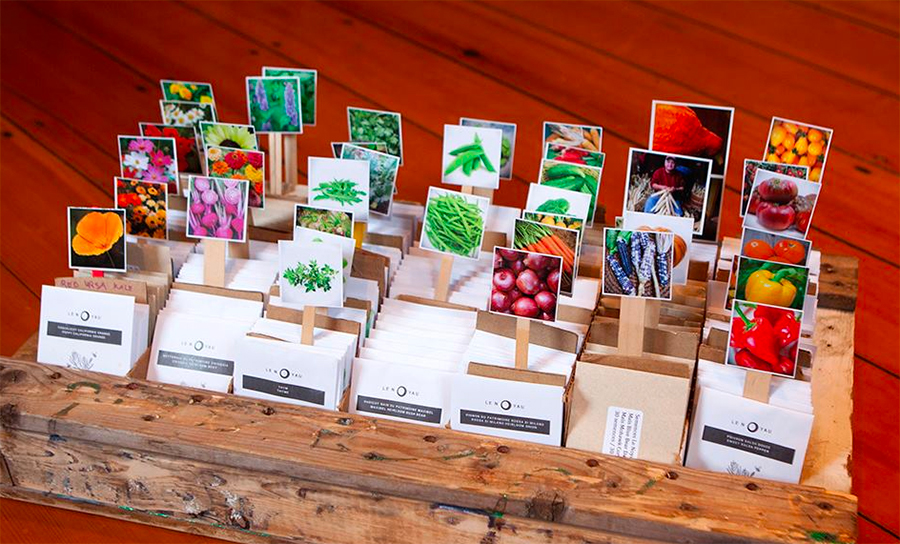Le Noyau, Local Organic Seed Farmer

Un texte de Andrea Conway
Paru dans le numéro Hiver/Winter 2022-2023
Publié le : 15 novembre 2022
Dernière mise à jour : 15 novembre 2022
Le Noyau is a 5-acre seed farm in Stanbridge East. Andrea Conway met with Teprine Baldo to know how seed farming works.

I must admit prior to this article I had never really thought of where seeds are actually “made.” I had heard of endangered species, but endangered seeds?
Late summer, I had the pleasure of meeting Teprine Baldo, a very enthusiastic seed farmer in Standbridge East. She had just come back to the farm after a day of substitute teaching. Like many farmers, it is not so easy to make ends meet with farming alone. I tagged along as she gave a tour of her incredible 5-acre farm to a fellow seed saver from Belgium.
As we walked along, a couple of young cats were practising their hunting skills on grasshoppers. There were also a few chickens, and ducks in the mix. They were all doing their best at helping with pest control. For squirrels, ticks, and a variety of other unwanted bugs can damage crops and since her farm is organic, no pesticides are used.
Next, we came upon a patch of calendula flowers. Teprine started pulling off the heads of the orange ones. She explained that what she was doing is called roguing. She is growing out this particular variety to be the specific colour of strawberry blond. I was very surprised to learn that to create a particular seed takes 10 years, 7 years to grow out and 3 years to stabilize!
As a seed farmer, you cannot eat or cut your crop. Flowers, tomatoes, beans all stay in the field until their seeds are ready to harvest. With the exception of a raspberry patch we came across. Much to everyone’s delight, we got to taste a delicious plump orange raspberry variety called Anne.
There are no formal seed education programs in Quebec. Teprine has been teaching herself, partially by getting in touch with other seed savers. One of which is Will Bonsall from Maine, nicknamed the Noah of seeds. He has been collecting seeds for over 40 years and has over 3000 varieties, some are rare and endangered. Teprine recently got the opportunity to help him sort through his collection. One seed that caught her interest is called the Volovski pumpkin. It is very special because its seeds have no shell. She is currently helping keep this variety alive by growing it on her farm.
Teprine has also been received with open arms by indigenous communities, who have been passing down their seeds for generations. All are very aware that if their wide variety of native seeds are not cared for, there is a risk of extinction. Different seed pools are necessary to prevent inbreeding depression. This is why seed savers are essential, and various seed sources are crucial.
Not only has Teprine been undertaking this huge project of protecting seeds, but she is also supporting real live artists in the process. I highly recommend visiting her website. Incredibly each seed has its own artwork, story of where it came from, and who grew it. She is trying in many ways to bring awareness to the importance of biodiversity. When we spoke, she was preparing a workshop for the Sutton School of Art. She planned to talk to kids about the value of seeds and use the dried stalks and such to apply as paint brushes to create art. She markets to a young/hip crowd with a second seed line called www.zombieseedz.ca.
Christmas is around the corner, why not support something important, and give the gift of growing! Seeds can be bought at Marché Tradition in Frelighsburg or online at www.lenoyau.com.
Andrea Conway

